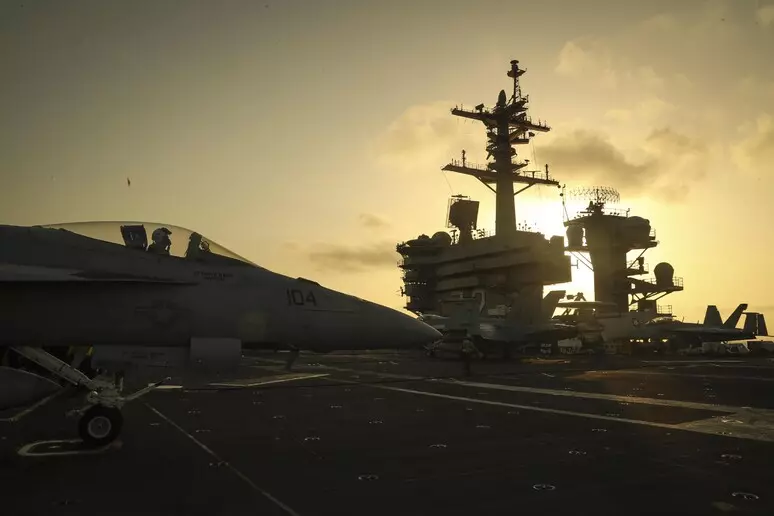As a tangible sign of the intensification of the conflict in Yemen, the Pentagon has decided to deploy a second aircraft carrier to the Middle East. The arrival of the USS Carl Vinson, accompanied by escort destroyers, which will join the USS Harry S. Truman, already operating in the Red Sea, in the coming days, underscores the strengthening of U.S. military operations in the region.
This deployment, ordered by Secretary of Defense Pete Hegseth, will see the Truman aircraft carrier extend its mission by at least one month. The decision comes as the Trump Administration strengthens its campaign against the fighters who have taken control of the area.
According to anonymous sources from the Department of Defense, this would be the second time in six months that the United States has simultaneously positioned assault ships in the region. This dual deployment, coinciding with a phase of rising tensions, highlights the strategic importance of the territory.
The USS Carl Vinson, which recently completed joint exercises in the East China Sea with Japanese and South Korean forces, is now preparing for its new assignment, signaling a prolonged military engagement.
This combination of naval and air resources underscores the U.S. determination to respond forcefully to the threats posed by the Houthis, following recent airstrikes that targeted several strategic sites in Yemen, including missile launch and storage facilities.
President Trump reaffirmed his commitment to fighting the militants, stating that the Yemeni rebels would be “completely annihilated.” He also threatened the Iranian regime, demanding that it immediately cease supplying weapons to them.
The Houthis, also known as Ansar Allah, gained notoriety especially since 2014, when they took control of the capital, Sanaa, clashing with the incumbent government. The movement has roots in the Zaidi community, a branch of Shiite Islam that predominates in the northern part of the country.
Originally motivated by the desire to defend their independence and gain greater political autonomy, the group has progressively gained power, even challenging foreign powers with attacks on commercial ships in transit.











